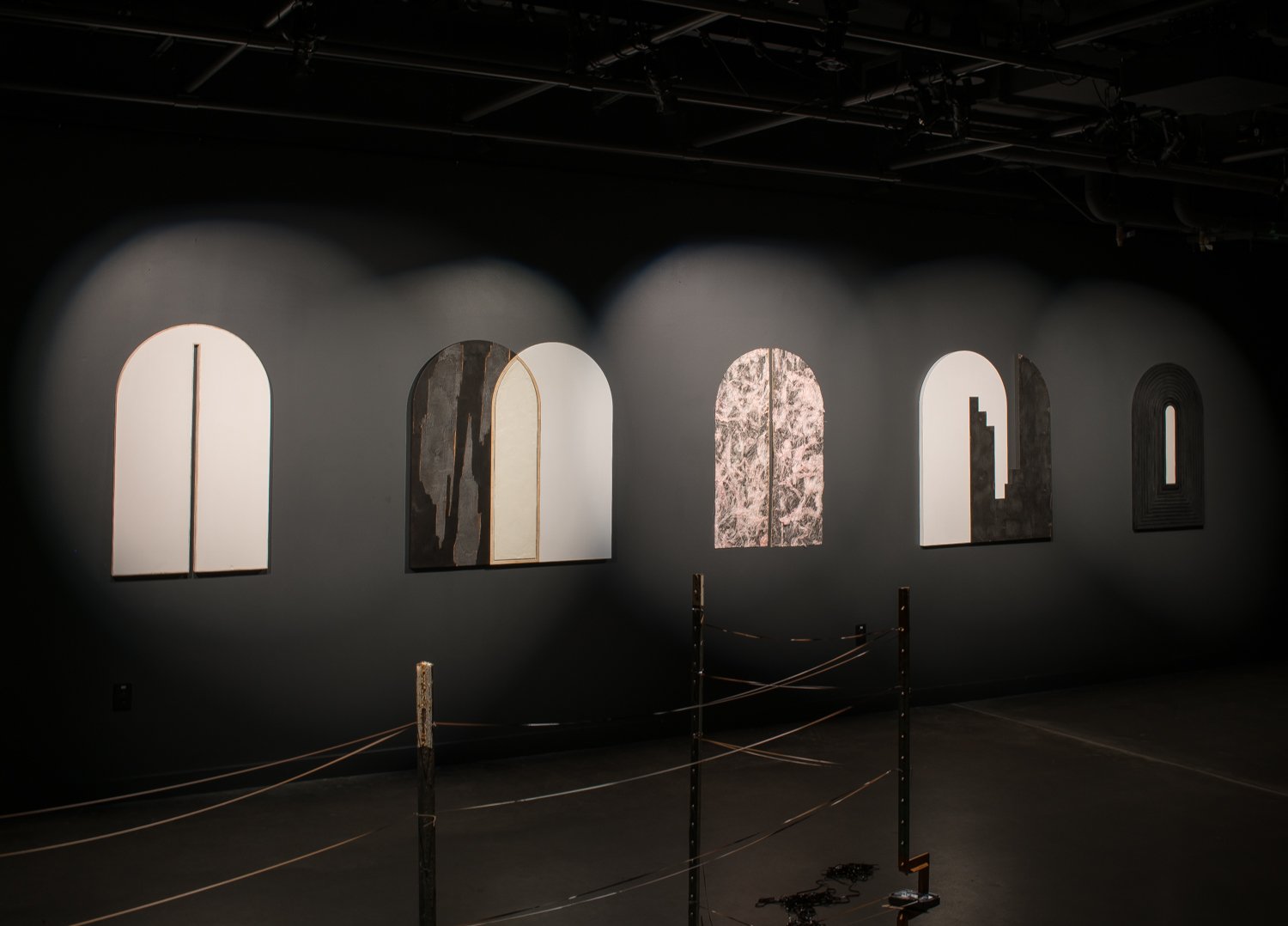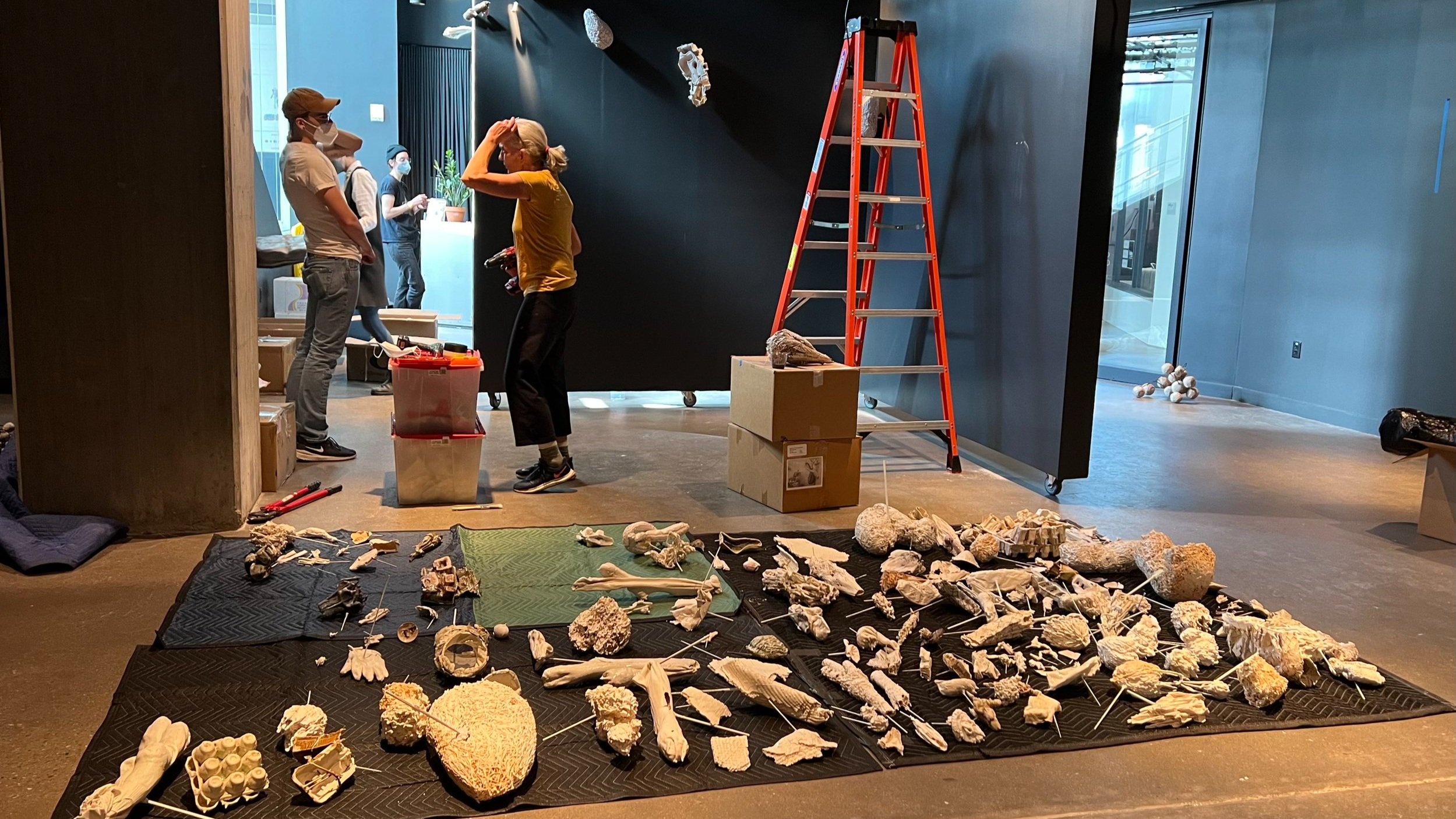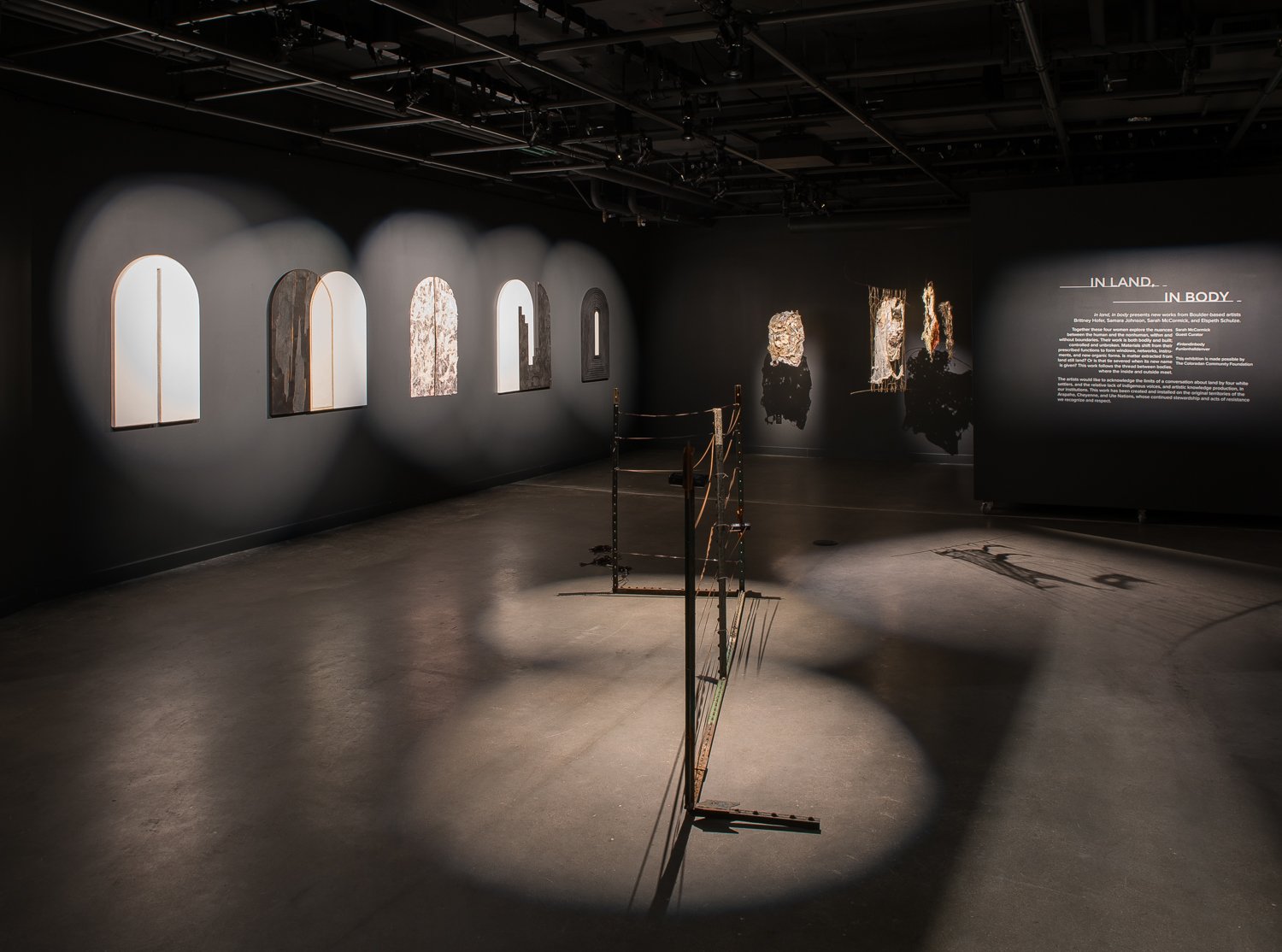
in land, in body
Brittney Hofer, Samara Johnson, Sarah McCormick, and Elspeth Schulze
October 25 — November 9, 2019
A two week pop-up exhibition curated by Sarah McCormick, in land, in body presented new works from four Boulder-based artists which explore the threads connecting human and non-human bodies.
About the Artists
-
Brittney Hofer
grew up in a small agricultural town in the plains of northern Montana. She received her BFA at the University of Montana Missoula in 2016 and is a current MFA candidate at the University of Colorado Boulder focusing in Sculpture & Post Studio Practices. Her work creates a connection between music-making and land use, emphasizing the way we navigate through the land with demarcated lines and audible borders that define ownership and theory.
-
Elspeth Schulze
is from Southern Louisiana, where the land is full of water and the water is full of land. She studied Literature at Loyola University, New Orleans, Fashion Design at the Fashion Institute of Technology, New York, and is currently a graduate student in Ceramics at the University of Colorado, Boulder. Her work combines these interests: through precise pattern making and material exploration, she shapes a visual language that works without words.
-
Samsara Johnson
was born and raised in Moose Pass, Alaska. She received her BFA from Sonoma State University in California and is currently an MFA candidate at the University of Colorado, Boulder. The experience of being raised in rural Alaska by a craftswoman mother inspires her use of non-human materials, including horse hair, porcupine quills, beads, and paper.
-
Sarah McCormick
grew up deep in the northwoods of Michigan. She completed her BFA at the University of Arkansas and is an MFA candidate at the University of Colorado, Boulder. Her work withinland wrestles with the complex and paternalistic relationship between humans and nonhumans, specifically within the context of land preservation. She examines the act of protection when applied to an entity that may have never given consent. Is the cordoning off of land for the purpose of conservation a gift to, or theft from, the organisms that populate it?









